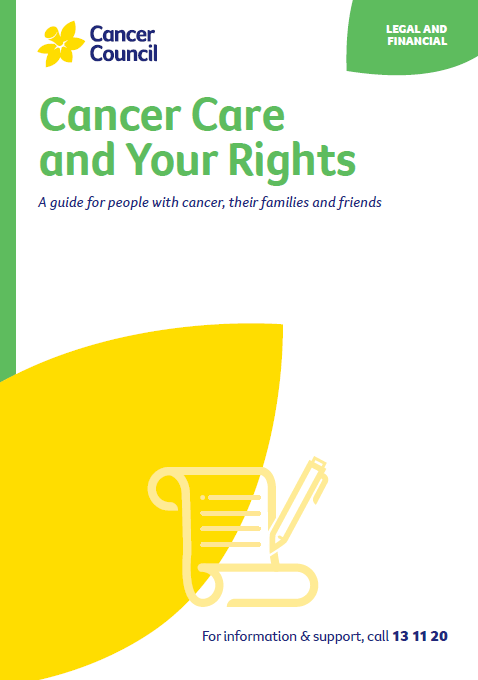- Home
- Peritoneal mesothelioma
- Making a claim
Making a claim
Some people who develop mesothelioma due to asbestos exposure may be able to claim compensation. Your legal entitlements will depend on the state or territory in which you were exposed to asbestos. In some cases, the exposure may have occurred overseas.
Learn more about:
Overview
Mesothelioma usually takes a long time to develop, so you may have been exposed to asbestos up to 50 years ago or even longer. You might think it was a small exposure, or you may not remember coming into contact with asbestos. Talking to your friends and family can help you remember places where you may have been exposed to asbestos.
An expert lawyer will also talk you through your life history and help you find out where the exposure took place. They will explain what compensation you may be able to claim and help make the process easy for you to understand.
Generally, a person diagnosed with mesothelioma has 2 different types of legal entitlements:
- a claim through the court, known as a “common law claim”
- a claim under a government compensation scheme, known as a “statutory claim”.
If you have developed mesothelioma as part of your job, you may be entitled to make a claim under a government-run workers compensation scheme in your state or territory. As well as financial compensation, these schemes may sometimes cover certain medical tests or treatment. See Statutory claim for contact details of the scheme relevant to you.
When my husband was diagnosed with terminal mesothelioma, we were advised to apply for compensation. He reluctantly contacted lawyers, and they assured us we had a very strong case. My husband didn’t survive to win his case, but I did get good advice from our lawyers.
SHARON
More resources
All updated content has been clinically reviewed by A/Prof Anthony Linton, Medical Oncologist, Concord Cancer Centre and Concord Repatriation General Hospital, NSW; Dr Naveed Alam, Thoracic Surgeon, St Vincent’s Private Hospital Melbourne and Monash Medical Centre, VIC; Prof David Morris, Peritonectomy Surgeon, St George Hospital and UNSW, NSW. This edition is based on the previous edition, which was reviewed by the following panel: A/Prof Anthony Linton (see above); Dr Naveed Alam, (see above); Donatella Arnoldo, Consumer; Polly Baldwin, 13 11 20 Consultant, Cancer Council SA; Dr Melvin (Wee Loong) Chin, Medical Oncologist, Sir Charles Gairdner Hospital and National Centre for Asbestos Related Diseases, WA; Prof Kwun Fong, Thoracic and Sleep Physician and Director, UQ Thoracic Research Centre, The Prince Charles Hospital, and Professor of Medicine, The University of Queensland, QLD; Vicki Hamilton OAM, Consumer and CEO, Asbestos Council of Victoria/ GARDS Inc., VIC; Dr Susan Harden, Radiation Oncologist, Peter MacCallum Cancer Centre, VIC; Penny Jacomos, Social Worker, Asbestos Diseases Society of South Australia, SA; Prof Brian Le, Director, Parkville Integrated Palliative Care Service, The Royal Melbourne Hospital and Peter MacCallum Cancer Centre, VIC; Lung Cancer Support Nurses, Lung Foundation Australia; Jocelyn McLean, Mesothelioma Support Coordinator, Asbestos Diseases Research Institute, NSW; Prof David Morris (see above); Joanne Oates, Registered Occupational Therapist, Expert Witness in Dust Diseases, and Director, Evaluate, NSW; Chris Sheppard and Adam Barlow, RMB Lawyers.
View the Cancer Council NSW editorial policy.
View all publications or call 13 11 20 for free printed copies.

